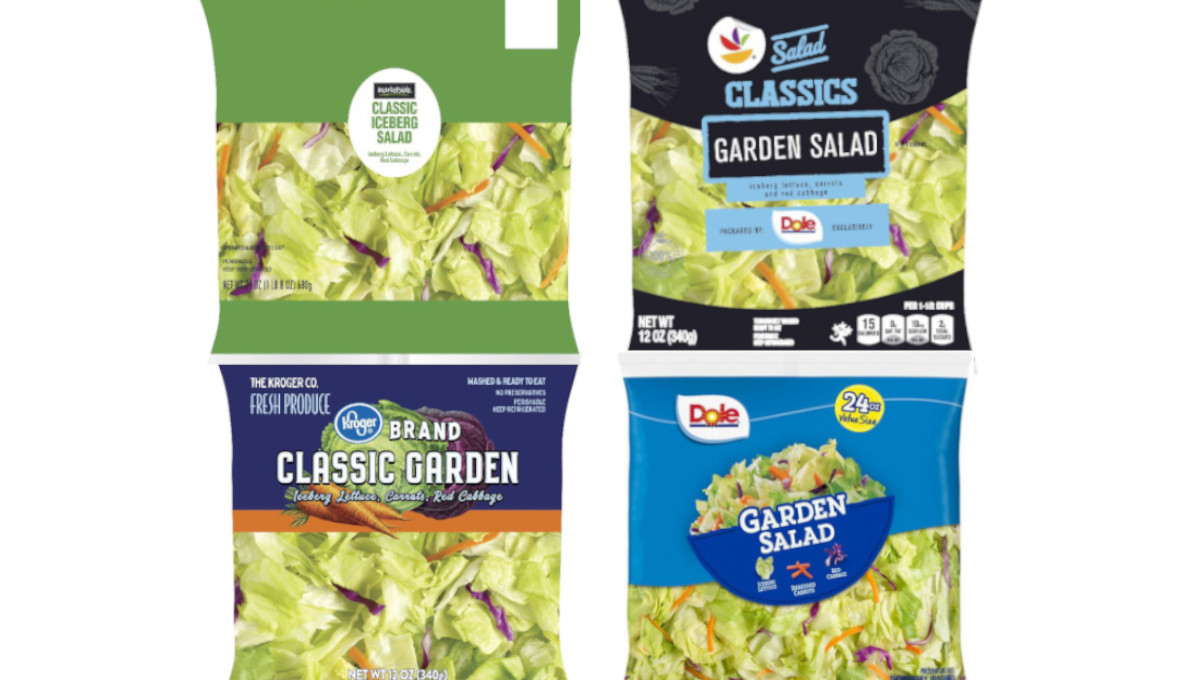Dole Fresh Vegetables Inc. is recalling garden salads because of possible Listeria monocytogenes contamination.
This recall is being issued because of a sample of garden salad which yielded a positive result for Listeria monocytogenes in a random sample test conducted by the Department of Agriculture in Georgia, according to the company’s recall notice posted by the Food and Drug Administration.
Consumers are advised to check products they have in their homes and discard any product matching these lot and UPC codes and Best if Used By dates.
The implicated products were distributed in Alabama, Florida, Georgia, Louisiana, Massachusetts, Maryland, North Carolina, Pennsylvania, South Carolina and Virginia.
Recalled products:
|
Product Description |
Lot Codes | UPC Code | Best If Used By |
| 24 oz Dole™ Garden Salad | N28205A and N28205B | 0-71430-01136-2 | 10-25-21 |
| 24 oz Marketside™ Classic Salad | N28205A and N28205B | 6-81131-32895-1 | 10-25-21 |
| 12 oz Kroger™ Brand Garden Salad | N28211A and N28211B | 0-11110-91036-3 | 10-25-21 |
| 12 oz Salad Classics™ Garden Salad | N28211A and N28211B | 6-88267-18443-7 | 10-25-21 |
The lot code and “Best if Used By” date are located on the upper right corner of the bags and the UPC code is located on the bottom left corner of the back of the bags.
As of the posting of the recall notice, no illnesses connected to any of the recalled lot codes have been reported.
About Listeria infections
Food contaminated with Listeria monocytogenes may not look or smell spoiled but can still cause serious and sometimes life-threatening infections. Anyone who has consumed any recalled product and developed symptoms of Listeria infection should seek medical treatment and tell their doctors about the possible Listeria exposure. Specific tests are required to diagnose the infections, which can mimic other illnesses.
Also, anyone who has consumed any of the recalled products should monitor themselves for the food poisoning symptoms during the coming weeks because it can take up to 70 days after exposure to Listeria for symptoms of listeriosis to develop.
Symptoms of Listeria infection can include vomiting, nausea, persistent fever, muscle aches, severe headache, and neck stiffness. Specific laboratory tests are required to diagnose Listeria infections, which can mimic other illnesses.
Pregnant women, the elderly, young children, and people such as cancer patients who have weakened immune systems are particularly at risk of serious illnesses, life-threatening infections, and other complications. Although infected pregnant women may experience only mild, flu-like symptoms, their infections can lead to premature delivery, infection of the newborn, or even stillbirth.
(To sign up for a free subscription to Food Safety News, click here.)

